Today’s readings
What would you give up for love?
That’s the question I want us to focus on today because I think it is, perhaps, the question of the spiritual life. What is it that we are willing to give up for love? And I’ll be honest: this set of readings gets me every time. When I see what Abraham, Jesus, and ultimately God the Father would give up for love, it makes me repentant of the shoddy things I tend to hang on to. But let’s bookmark that for a bit and get into the readings we have today.
Today’s first reading puts poor Abraham in an awful position. Remember, he and Sarah were childless well into their old age. And it is only upon entering into relationship with God that that changes. God gives them a son, along with a promise, that he would be the father of many nations. It’s unbelievable. Think of anyone you know who has had to struggle with the pain of being childless. And here God puts an end to that just when they have come to terms with the fact it was never going to happen. Everything changes for them, an old and childless couple.
And so now put yourself in Abraham’s place. After rejoicing in the son he never thought he’d have, God tells him: “Take your son Isaac, your only one, whom you love, and go to the land of Moriah. There you shall offer him up as a holocaust on a height that I will point out to you.” It’s not a suggestion, it’s not an invitation, it’s an order. Now, Abraham knows that it’s only because of the gift of God that he has Isaac to sacrifice in the first place. But for those of you who are parents: think about it, what would you do? How would you feel in that moment? That boy is the answer to your life-long prayers, and now God wants him back. Wow.
The reading omits a chunk in the middle that is perhaps the most poignant part. Abraham packs up and takes his son on a journey, travels with some servants, and at the end of it, he and Isaac haul the wood and the torch up the mountain. Isaac asks him: “Here are the fire and the wood, but where is the sheep for the burnt offering?” Can you even begin to imagine the anguish in poor Abraham’s heart? And yet he responds in faith: “My son, God will provide the sheep for the burnt offering.” Which, of course is absolutely true. God had provided Isaac, who was intended to be the sheep. God had, indeed, provided Isaac. But Abraham couldn’t have known that God would intervene, couldn’t have imagined what God had in mind.
Now, we could get caught up in the injustice here and call God to task for asking such a horrible thing in the first place. Why would God test poor Abraham like this? Why would he give him a son in his old age, only to take him away? What purpose did that serve? And who wants to worship a God who would do something like that? But we have to know that the purpose of the story is to illustrate that God has salvation in mind; that he always intends the good for us. Yes, God would provide the lamb. It was never going to be Isaac; it’s not even the sheep caught up in the thicket – not really. We know that the sheep for the burnt offering is none other than God’s own Son, his only one, whom he loves. The story is ultimately about Jesus, and his death and resurrection are what’s really going on in today’s Liturgy of the Word.
So let’s let that sink in for a minute. No, of course we don’t want to worship a God who would be evil enough to give a couple the gift of a child in their old age and then demand that he be sacrificed. But we certainly worship this God who, in his great love for us, sacrifices his Son, his only one, whom he loves. That, friends, is our God. That’s what all of this is all about.
Now let’s get back to the thought I asked you to bookmark at the beginning of my homily today: Abraham trusted God and was willing to give up the thing he’d probably die for – his own son. God asked, and he, anguished as he must have been, made the preparations and was ready to do it. That’s what love of God meant to him. So what are we willing to give so that we can demonstrate – to ourselves if to no one else – our trust in God’s ability to love us beyond all telling? For Lent, we’ve given up chocolate, or sweets, or even negative thinking or swearing. Maybe we’ve been successful, or perhaps have not done well with them, or maybe we have even given up giving up the things we gave up! But we need to see in Abraham’s willingness that our sacrifices, however big or small they are, are important; they mean something. So maybe now, still early in Lent, it’s time to take a second look at our Lenten sacrifices. Can we go deeper? What are we willing to give up to experience God’s love more fully?
Jesus goes up a mountain in today’s readings too – and when he does, he sees that he is to become the sheep for the sacrifice – sooner rather than later. That was the meaning of the Law and the prophets of old, symbolized by Moses and Elijah on the mountain. But knowing that, and knowing what’s at stake, he does not hesitate for a moment to go down the mountain and soldier on to be that great sacrifice. He willingly gives his own life to be the sheep for the sacrifice, because leaving us in our sins was a price he was not willing to pay. His life was the thing he was willing to give up for love; for love of us. There are a lot of things out there for us that seem good. But the only supreme good is the life of heaven, and eternity with our God. Think of the thing that means everything to you: are you willing to sacrifice that to gain heaven? Are you willing to give everything for love of God?
Because, for you, for me, God did.
God did that for us.
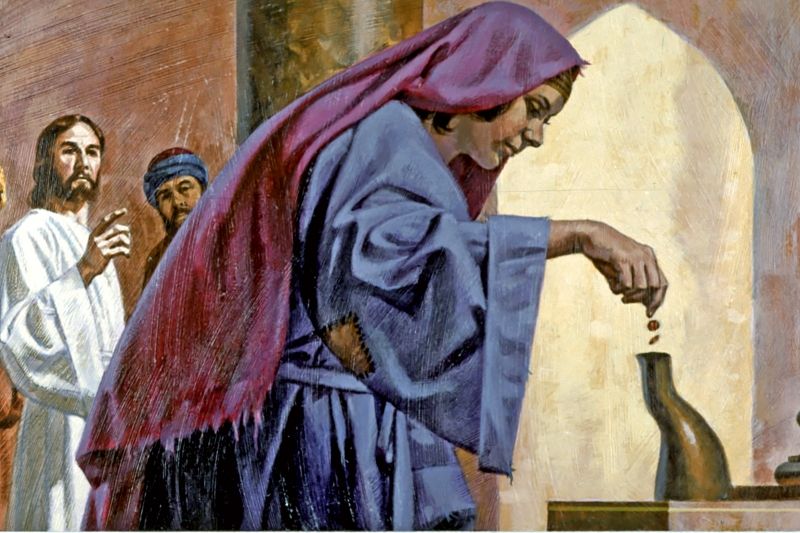
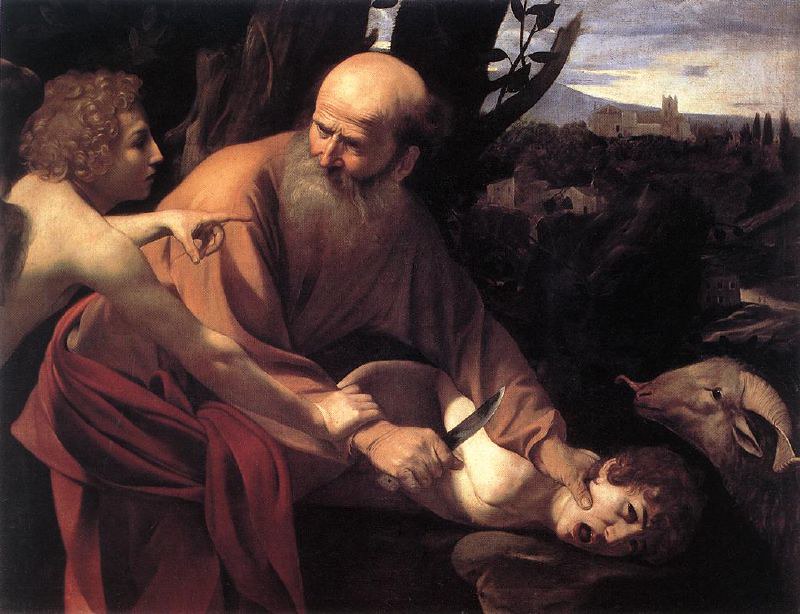
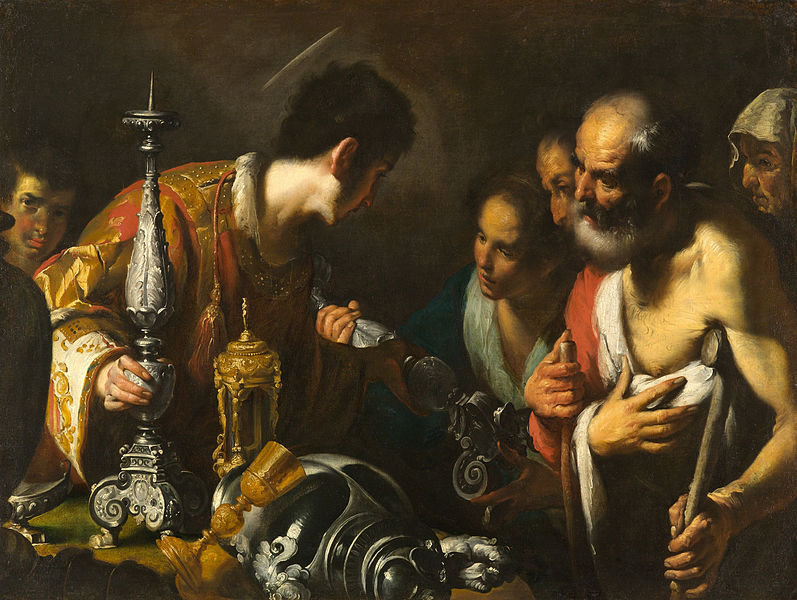
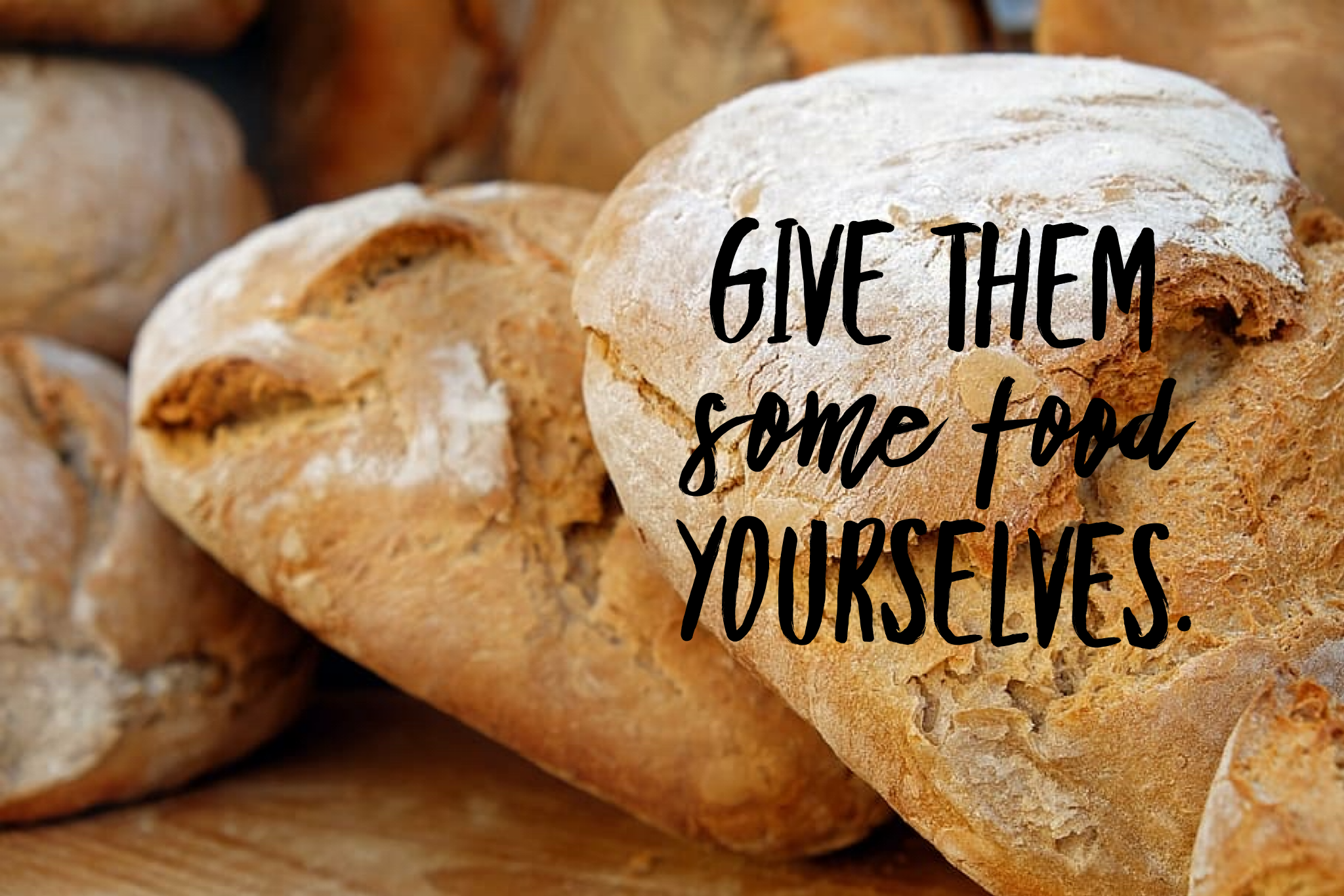
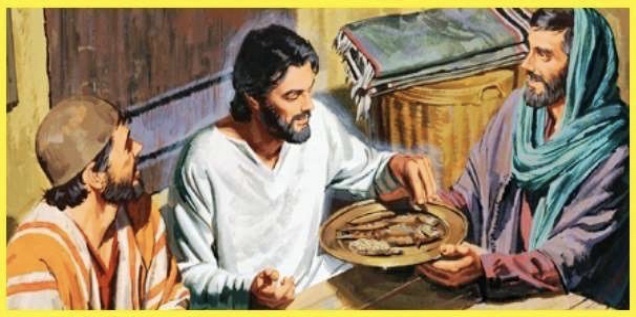
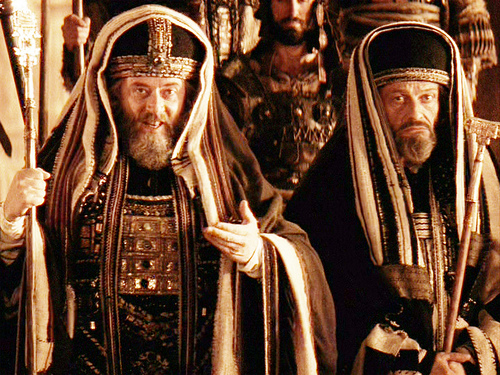


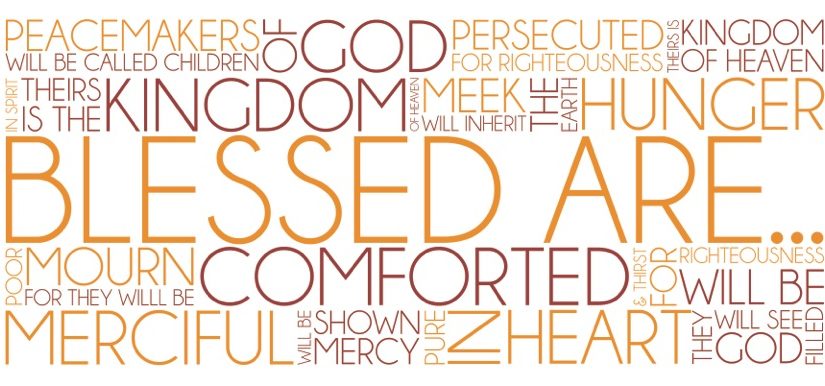

You must be logged in to post a comment.